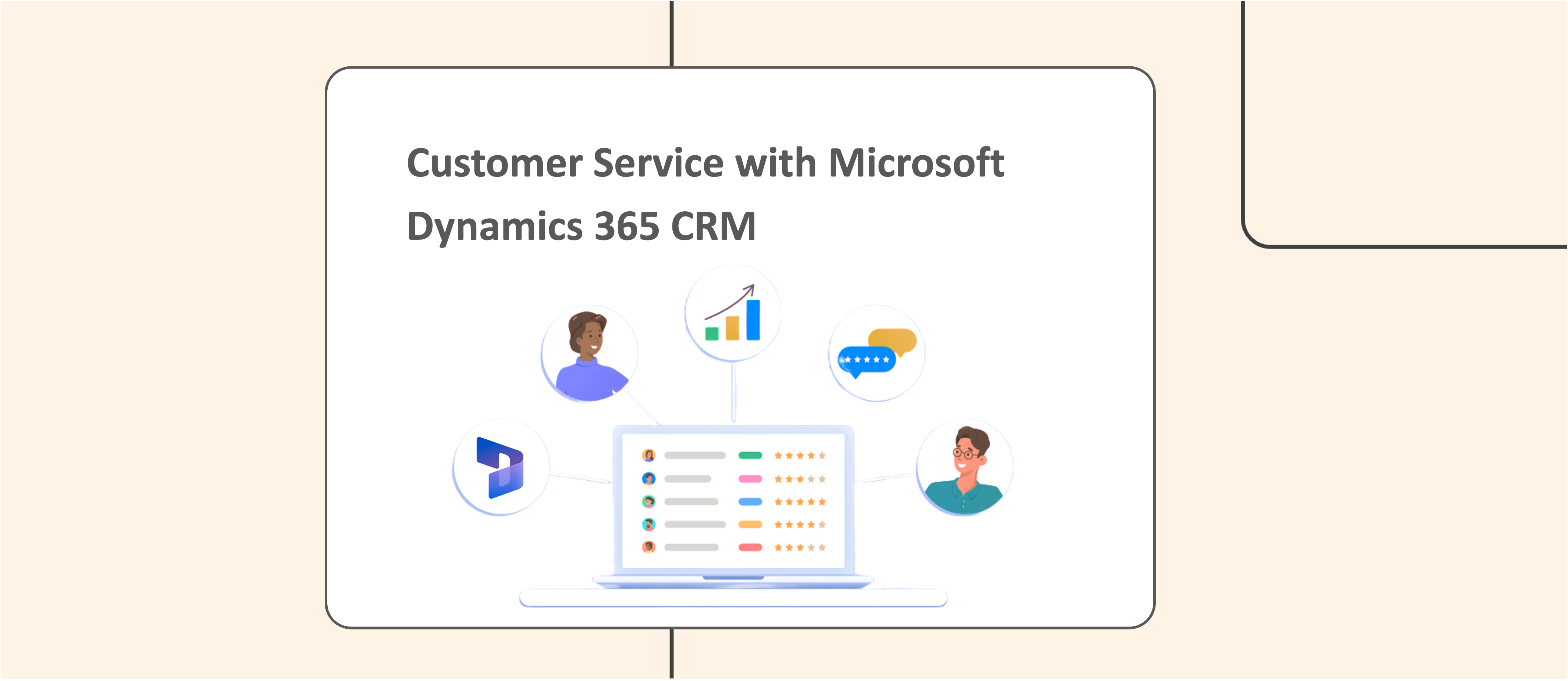Dynamics 365 Customer Service Implementation is a powerful solution that helps businesses enhance customer service by offering a unified platform to manage client data, interactions, and workflows. Since customer service is essential to a company’s success—being the primary channel for client communication—implementing effective tools like Dynamics 365 can significantly improve customer satisfaction, brand loyalty, and revenue.
By utilizing Dynamics 365 Customer Service, organizations can streamline customer interactions, automate processes, and provide a more personalized experience. In this article, we will explore how businesses can leverage this CRM system to deliver superior customer care. You will also learn how to implement Microsoft Dynamics 365 Customer Service to optimize and improve your customer service operations.
What is Dynamics 365 Customer Service, and What are its Features?
Microsoft Dynamics 365 Customer Service is a module for customer service automation that simplifies case and knowledge management, allows personalised support with a 360-degree customer perspective, and offers visibility into service agents’ performance through dashboards and reporting.
It enables companies to improve customer service by delivering important consumer information, customising customers’ experiences, and boosting productivity.
The module is fundamentally designed to assist organisations in increasing customer satisfaction by giving a holistic picture of each customer’s interactions and demands.
It accomplishes this by combining consumer data from many sources, including email, phone conversations, and social media, and offering tools for tracking, analysing, and responding to customer enquiries and concerns.
Let’s look at the features of this Dynamics 365 CRM module below:
1. Case Management
It allows companies to generate and manage customer service cases, assign cases to individual agents or teams, and monitor the resolution progress of cases. This makes the process very fast and efficient; hence, customers don’t have to wait.
2. Knowledge Management
It offers a centralised knowledge base for storing and distributing information and resources relating to customer service concerns. This allows agents to obtain pertinent information quickly and improve response times.
3. Omnichannel Engagement
This CRM allows companies to communicate with consumers across numerous channels, including phone, email, chat, and social media and gives a consolidated picture of all interactions. So, customers have the freedom to choose their preferred channels.
4. Customer Feedback
Dynamics 365 Customer Service implementation offers tools for recording and evaluating customer feedback, allowing organisations to find areas for improvement and proactively address consumer complaints.
5. AI Capabilities
The AI-powered features in the Dynamics module enable companies to perform proactive service. The offering includes built-in transcription and translation, real-time sentiment analysis, and context-driven agent suggestions. You can utilise AI to assign questions from all channels to the best-suited agent.
Best Practices for Enhancing Customer Service through Dynamics 365 Customer Service Implementation
1. Implement a Self-Service Portal
A self-service portal enables users to obtain answers to frequently asked questions and address their concerns, therefore lowering the strain on customer support employees.
We suggest establishing a self-service portal within Dynamics 365 CRM and using it to offer clients a knowledge base of commonly asked questions and troubleshooting instructions.
2. Improve Consistently
Companies can use data analytics inside Dynamics 365 CRM to measure key performance indicators (KPIs), such as response times and resolution rates, and utilise this data to discover areas for improvement and constantly enhance customer service operations.
3. Create a Customer-Centric Culture
It is essential to prioritise customer satisfaction to deliver excellent service to customers. This requires fostering a culture in which everyone recognises the importance of the customer and is committed to providing an extraordinary customer experience.
4. Educate Employees on the Platform
It is essential to teach all staff that engage with clients how to successfully and efficiently utilise the Dynamics module. This includes documentation of customer contacts and recording updates.
By providing extensive training, staff will be able to understand the platform’s possibilities and how to use them to enhance the client experience.
5. Personalise Customer Interactions
Personalizing client interactions involves leveraging Dynamics 365 Customer Service Implementation to collect and store valuable customer data, including preferences and past interactions. By utilizing this information, businesses can deliver a more tailored experience that aligns with each customer’s unique needs.
For instance, this approach enables personalized product recommendations and targeted marketing communications, enhancing customer satisfaction and loyalty.
How to Implement Dynamics 365 Customer Service for Improved Service
Improving customer service through Dynamics 365 Customer Service Implementation is a process that requires careful strategy and execution. Here are the steps for Dynamics 365 Customer service implementation for enhanced customer success:
1. Describe Your Goals
The first step is to identify your Dynamics 365 CRM implementation goals. This involves determining the desired results, such as faster response times, higher customer satisfaction, and less customer turnover.
2. Assess Your Current Processes
After defining your goals, you must evaluate your present customer service procedures and find process improvement opportunities, such as simplifying workflows and enhancing communication channels.
3. Customise your CRM
Dynamics 365 CRM is a highly adaptable platform that can be adjusted to your requirements. You can collaborate with a Dynamics 365 specialist such as Zelite to tailor the platform’s configuration to your customer service operations and objectives according to your need.
4. Migrate Your Data
You must migrate your data if you transfer from another CRM or database to Dynamics 365 CRM. Consult with a professional to guarantee flawless and efficient data movement.
5. Improve Your Staff
Your personnel must be taught how to utilise the platform to maximise the benefits of Dynamics 365 CRM. Give thorough training to all staff who will be using the platform.
6. Continually Evaluate and Improve
Dynamics 365 CRM offers data and insights that may be utilised to find improvement opportunities. Constantly assess your customer service metrics and procedures and search for improvement.
Conclusion
The interest in enhancing customer experiences through Dynamics 365 Customer Service is widespread, cutting across various industries and organizational sizes. For instance, 15% of participants in a service sophistication assessment came from financial services, while retail, healthcare, and public sector organizations each represented about 11%(Microsoft)(Velosio).
Our experienced consultants can work with you to tailor the platform to your unique requirements and offer continuous support to guarantee a successful deployment. Learn more about our Dynamics 365 customer service solutions by contacting us today.




